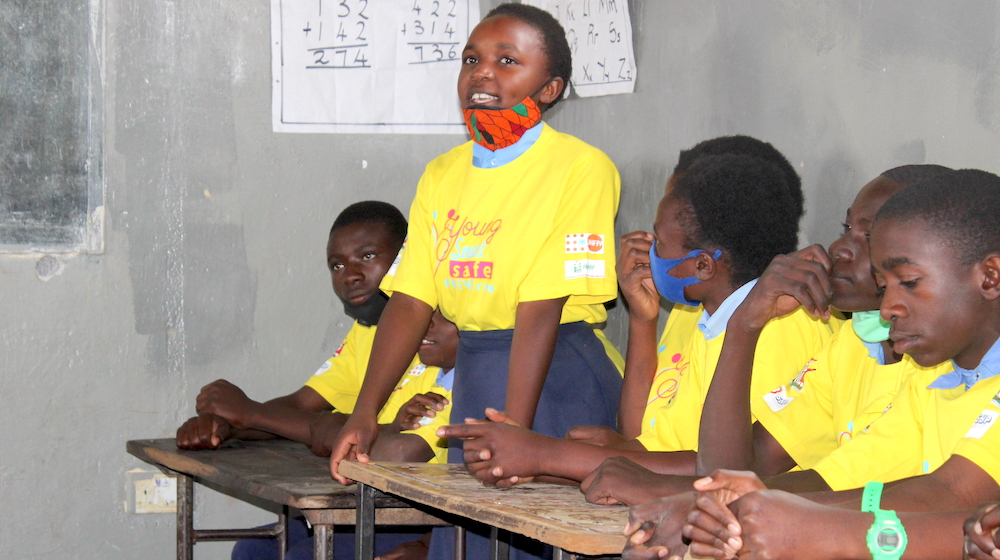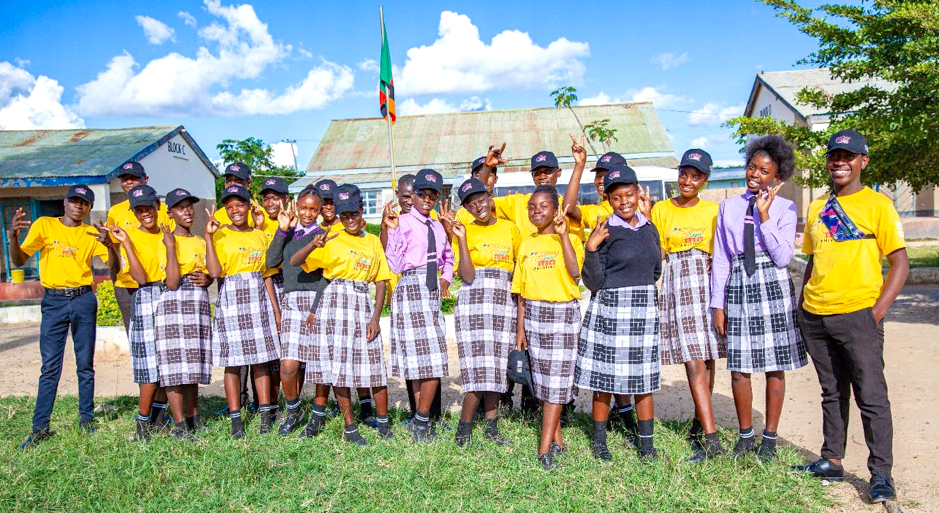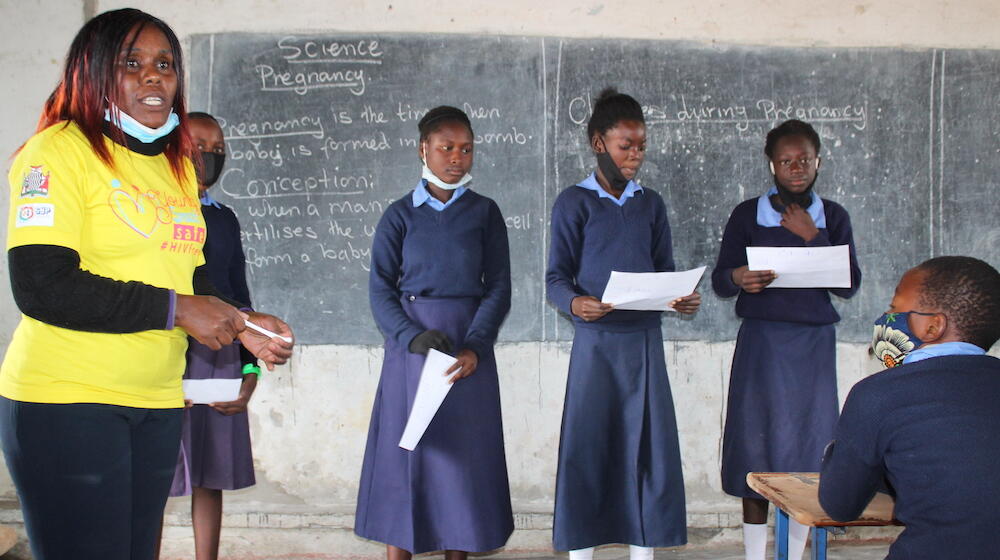LUSAKA, Zambia – In a classroom filled with eager learners, a teacher writes on the chalkboard in preparation for her lesson on pregnancy. She is teaching this subject as part of the science curriculum at a primary school in Kapiri Mposhi, Zambia.
“If you look at this, which subject are we talking about here?” the teacher prompts as she points at the word ‘pregnancy’ scrawled on the chalkboard.
“Science!” the students chorus.

During a two-day field visit to Zambia, the UNFPA Safeguard Young People (SYP) programme, alongside partners Swiss Agency for Development and Cooperation (SDC) and the Embassy of the Kingdom of Netherlands (EKN), observed dedicated teachers, principals, health-care workers, peer educators and district officials in districts where SYP has been implemented.
The programme has provided a conducive environment for young people to access information and youth-friendly health services.
“The programme has provided a conducive environment for young people to access information and youth-friendly health services, through a combination of education and health care. This is one of the unique strengths of the programme,” said Dr. Alexander Kawimbe, Central Province Acting Provincial Health Director. He was speaking on the integrated intervention, from both the health and education sectors, to ensure that young people are reached effectively with information and services.
At the heart of this visit were the teenage girls and boys who participate in the age-appropriate comprehensive sexuality education classes and after-school clubs. They are equipped with timely information and skills to make knowledgeable choices about their body and their future. The schools and the health facilities work hand in hand to ensure their health and well-being.
Adolescents and young people are able to access youth-friendly sexual and reproductive health and rights services at the local health facilities. A referral system between the schools and the health facilities has been established, making sure that young people’s needs in this respect are met.

“The field visit provided an overall positive impression of the SYP programme implementation in Zambia. There is evidence of an increase in knowledge and skills, such as assertiveness among the young people,” said Lawrence Lewis, SDC Senior Regional Programme Officer HIV/AIDS and Gender Focal Point.
In 2021, through SYP, the CONDOMIZE! and YoungSmartFree campaigns distributed more than 580,000 condoms and reached 229,000 young people with information on sexual and reproductive health in Zambia. Over the past nine years, with committed funding from SDC and EKN, the SYP programme has made significant strides in empowering adolescents and youth in Zambia, and across seven other countries in Southern Africa. With the programme’s recent expansion to Angola, Mozambique, Tanzania and Rwanda, UNFPA is working to fulfill its vision of an East and Southern Africa free from sexually transmitted infections, including HIV, teen pregnancy, child marriage and sexual violence.



